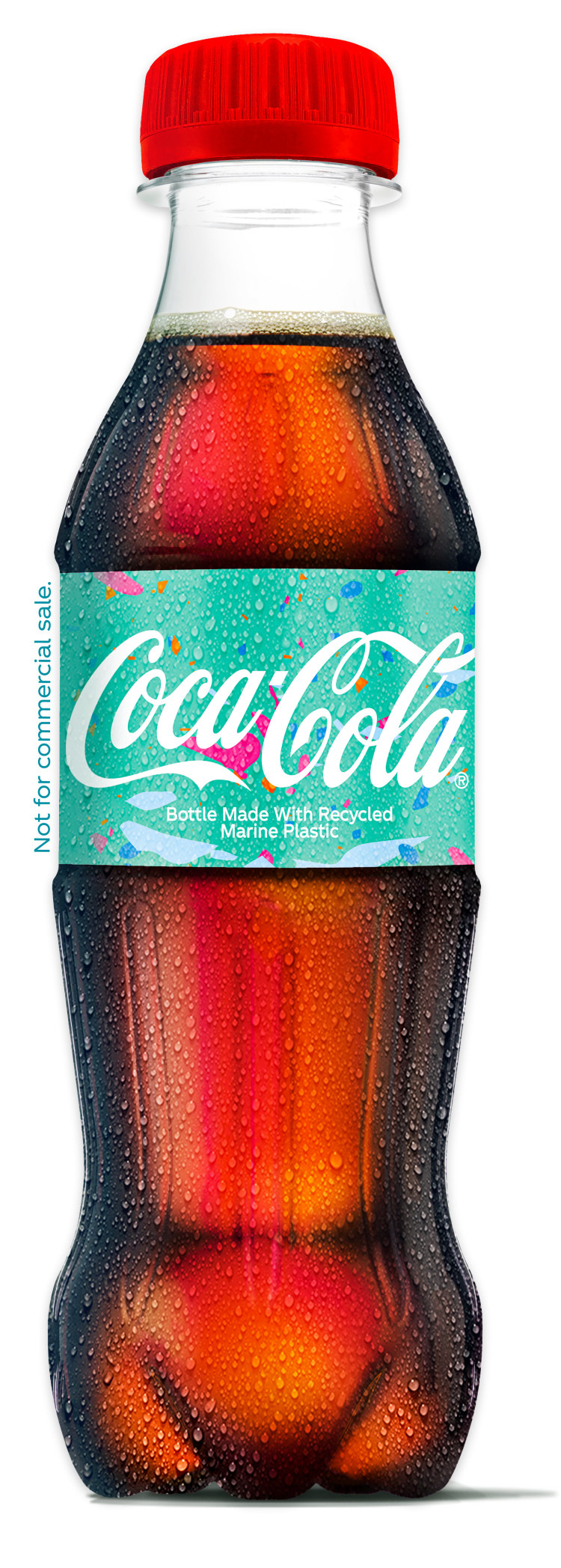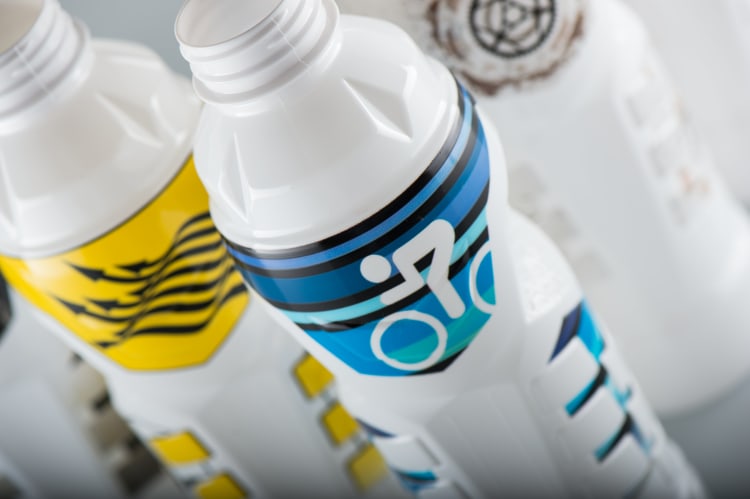Sustainable products and packaging
When it comes to products and packaging, more and more consumers are paying closer attention to sustainability aspects, and are consciously choosing healthier, regional, fair trade and organic products. Beverage manufacturers and packagers are reacting to customer demands with intelligent technologies, machines and equipment that conserve resources as well as with recyclable materials that can be used in closed cycles.
Global beverage brands, such as Coca-Cola and Pepsi, are banking on sustainable raw materials and one hundred percent recyclability when it comes to primary and secondary packaging. By 2025[2] – 2030 at the latest – Coca-Cola, for example, aims to return one item of packaging to the recycling cycle for every item of packaging that is brought to market. The company also plans to make every bottle fully recyclable.
In 2019, the beverage giant presented the first sample bottle, which is made of 25 percent food grade ocean plastic. In the course of this partner project between Ioniqa Technologies, Indorama Ventures, Mares Circulares (Circular Seas) and the Coca-Cola Company, an initial 300 bottles have been produced, with the aim of illustrating the potential of “enhanced recycling”.

Coca-Cola bottle made out of ocean plastic. Photo: Coca-Cola Germany
According to company statements, this innovative method is to ensure that in future, used plastic – regardless of its quality – can be turned into high-quality plastic. “These enhanced recycling technologies[3] are tremendously exciting. And not just for us, but for the entire industry as well as society. They are accelerating our prospects of a closed reusable materials cycle for plastic. That’s why we are investing in these technologies,” says Bruno van Gompel, Technical and Supply Chain Director at Coca-Cola in Western Europe, when asked to explain Coca-Cola’s commitment.
Holistic recycling
The Krones group’s MetaPure recycling facilities are one example of enhanced recycling technologies. These facilities can recycle between 150,000 and 200,000 tonnes of PET bottles per year – in various material qualities, including food grade PET. The objective is to ensure that beverage bottles and other plastic packaging can be recycled completely, including their materials.
Krones subsidiary Dekron presents another successful example: the DecoType Select direct printing machine. The machine can print on containers made out of 100 percent rPET using ink that can be removed from the PET without any residue during recycling.

Dekron’s DecoType Select can print on bottles made of virgin PET as well as rPET. Photo: Matthias Jeserer, Krones AG
100 % rPET
At the end of 2019, German system provider KHS first presented its packaging development that focuses on the entire life cycle to the public. The aptly named Beyond Juice is a new bottle development for sensitive beverages such as fruit juices. The recyclable PET bottle is made out of 100 percent recyclate and is equipped with the FreshSafe PETâ barrier solution. This ensures that fruit juices and spritzers have an up to ten times longer shelf life compared to uncoated plastic bottles. A wafer-thin glass coating makes this possible, preventing oxygen from entering the bottle and carbon from escaping.
“Beyond Juice is more than just a fruit juice bottle; it is our tangible answer to the challenges the beverage industry currently faces. In light of the current discussion on plastics, environmentally friendly and practical solutions are becoming more and more important,” says Philipp Langhammer, Product Manager Barrier Technology at KHS Corpoplast.
The label area is particularly small; this allows sorting facilities to identify bottles as PET bottles and thus recycle them without problems. The right glue furthermore ensures that labels can be removed easily, and prevents contamination during the recycling process.
“The seal on the label allows consumers to take the truly excellent recyclability into account when making their purchasing decisions at the supermarket,” emphasises packaging engineer Julian Thielen, who works for Interseroh, an environmental services provider.

Beyond Juice bottles are also available in foil-free batches. The Nature MultiPackTM packaging solution holds the bottles together using easily soluble yet powerful glue dots. Photo: KHS GmbH
When sold in batches such as six packs, no foil is used; instead, the bottles are held together by glue dots, which can be removed easily during recycling. “By eliminating the surrounding foil, we have further reduced packaging waste by up to 90 percent,” says Philipp Langhammer.



